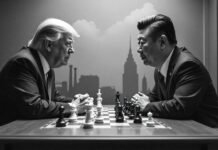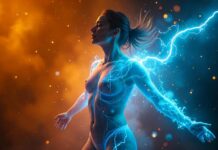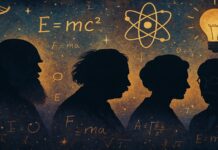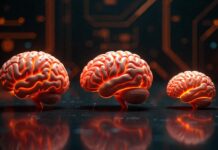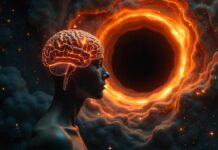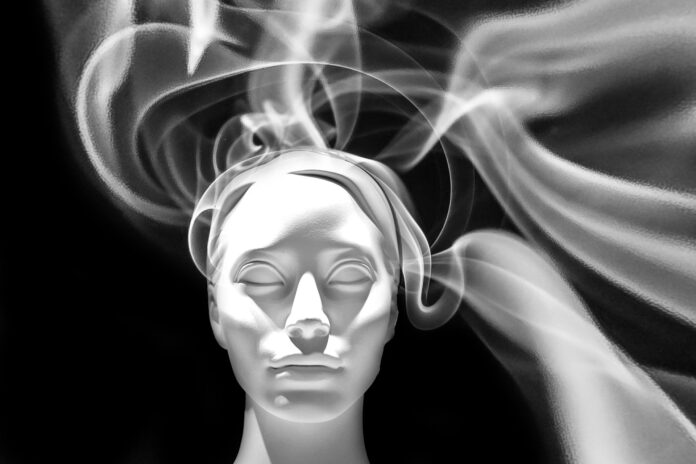
In the fast-paced whirlwind of our daily lives, it’s all too easy to become ensnared in the web of routine, to overlook the profound questions about existence and reality that lie beneath the surface of our consciousness. Fortunately, literature possesses the remarkable ability to challenge our preconceived notions, to shatter the limitations of our understanding, and to propel us into realms of thought previously uncharted. In this article, we will embark on a captivating journey through the top 10 must-read books that will undoubtedly make you reconsider your perception of reality.
Related: What Is True Nature Of Reality?
Related: Must-Read Easy-to-Understand Books About Quantum Physics
Related: Top 5 Longest Books Ever Written
Related: Simulation Hypothesis: A Brief History and Origin
1. “Tertium Organum” by P.D. Ouspensky
At the pinnacle of our list, we find P.D. Ouspensky’s “Tertium Organum,” a beacon of metaphysical enlightenment that was birthed into existence during the early 20th century. Within the pages of this remarkable book, Ouspensky introduces the captivating notion of a “third organ of thought,” an instrument of cognition that transcends the boundaries of ordinary perception and intellectual comprehension. With eloquence and precision, Ouspensky instructs us to question the conventions of our thinking, inviting us on a transformative odyssey into the boundless dimensions of reality itself.
2. “The Doors of Perception” by Aldous Huxley
Aldous Huxley’s “The Doors of Perception” secures a well-deserved position on this list by offering an enthralling exploration into the realms of altered consciousness. Inspired by his own profound experiences with the psychedelic substance mescaline, Huxley extends an invitation to readers to peer through the doors of perception. Through his words, he demonstrates how our everyday awareness can be limiting, and how the expansion of consciousness can lead to a profound reevaluation of our perception of reality.
3. “Flatland” by Edwin A. Abbott
Edwin A. Abbott’s “Flatland” is a literary masterpiece that ingeniously employs the concept of a two-dimensional world as a lens through which to comment on the limitations of our own perceptions. Readers are beckoned into the life of a square who stumbles upon the revelation of a third dimension, shattering the rigid social hierarchy of Flatland in the process. Abbott’s allegorical narrative serves as an eloquent reminder to question the assumptions that underpin our understanding of reality and to contemplate the existence of dimensions beyond our grasp.
4. “The Holographic Universe” by Michael Talbot
Michael Talbot’s “The Holographic Universe” offers a riveting perspective on the fabric of reality itself. Delving into the fascinating idea that our world might resemble a hologram, with every fragment containing the entirety of information, Talbot artfully weaves together scientific research and metaphysical concepts. His work challenges us to reconsider the very boundaries of our reality and to embrace the interconnectedness that defines the universe.
5. “The Dancing Wu Li Masters” by Gary Zukav
Gary Zukav’s “The Dancing Wu Li Masters” ingeniously bridges the gap between modern physics and Eastern spirituality. Through Zukav’s discerning eyes, readers embark on an expedition through the complex corridors of quantum mechanics, relativity, and the interdependence of all phenomena. By drawing insightful parallels between scientific discoveries and ancient wisdom, Zukav catalyzes a profound shift in our conventional understanding of reality, urging us to embrace a holistic perspective that transcends the boundaries of traditional thought.
6. “Simulacra and Simulation” by Jean Baudrillard
Jean Baudrillard’s “Simulacra and Simulation” is a seminal work that explores the concept of hyperreality and simulation. Baudrillard argues that contemporary society has become so saturated with simulations and copies that it becomes challenging to distinguish between reality and the simulated representations of reality. This book is particularly relevant to discussions about the simulation hypothesis, as it delves into the idea that our perceived reality may be a simulation or a hyperreal construct. It’s a mind-bending exploration of how symbols and simulations shape our understanding of the world and a crucial addition to any list of books challenging conventional notions of reality.
7. “Siddhartha” by Hermann Hesse
Hermann Hesse’s timeless classic, “Siddhartha,” traces the spiritual journey of its eponymous character as he embarks on a quest for enlightenment and a deeper comprehension of reality. Set against the backdrop of ancient India, the novel delves into themes of self-discovery, meditation, and the interconnectedness of all living beings. It serves as a poignant reminder of the profound mysteries that surround existence, beckoning readers to reflect upon the nature of their own lives.
8. “The Varieties of Religious Experience” by William James
In “The Varieties of Religious Experience,” William James, a trailblazing psychologist and philosopher, embarks on a captivating exploration of the diverse range of human spiritual encounters and their implications for our comprehension of reality. James delves deep into the myriad ways in which individuals connect with the divine and how these experiences mold their perception of the world. The book stands as a testament to the intricate relationship between spirituality and the reality we perceive.
9. “The Alchemist” by Paulo Coelho
Paulo Coelho’s “The Alchemist” weaves a captivating narrative centered around Santiago, a shepherd who embarks on a transformative journey to pursue his personal legend. Along the way, he discovers the interconnectedness of dreams, desires, and the vast cosmos. This allegorical novel encourages readers to ponder their own life’s purpose and the role destiny plays in shaping our understanding of reality.
10. “The Secret Teachings of All Ages” by Manly P. Hall
Manly P. Hall’s monumental work, “The Secret Teachings of All Ages,” stands as a comprehensive exploration of esoteric and mystical wisdom drawn from a vast tapestry of cultures and eras. This encyclopedic tome delves deep into the realms of symbolism, mythology, and the concealed knowledge of the ages. By unveiling these secret teachings, readers gain a profound insight into the hidden dimensions of reality that often elude our conscious awareness.
Summary
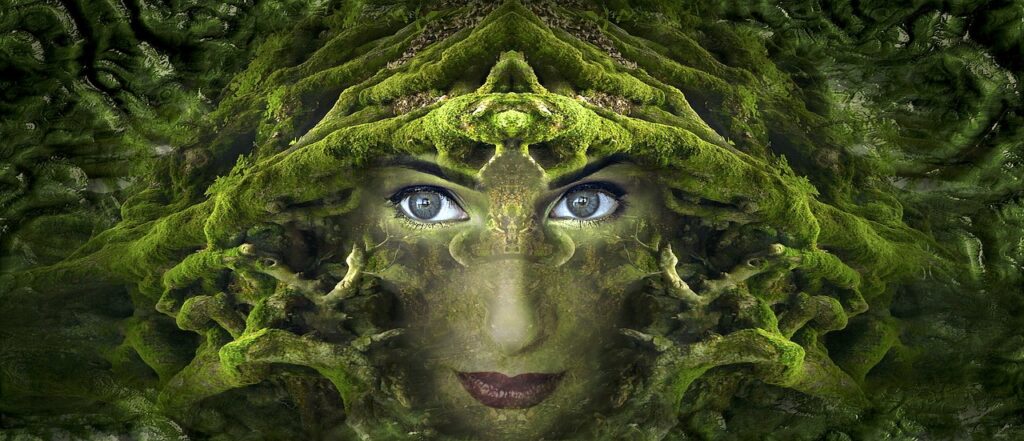
In conclusion, these ten extraordinary books, each a treasure trove of wisdom and insight, offer a profound challenge to your perception of reality. Whether you embark on a journey through higher dimensions of thought, explore altered states of consciousness, or contemplate the interconnectedness of the cosmos, these literary gems will stretch the boundaries of your mind and encourage you to boldly confront the reality you believed you knew. Prepare to embark on a voyage of self-discovery and enlightenment as you immerse yourself in these captivating works that summon you to rethink reality itself.
Note: If you’re interested in similar articles, we’d recommend to check out:
- Top 10 Books For Curious Minds
- 10 Must-Read Books on Alternate History
- Top 5 Books On Thought Experiments
- Top 10 Books For Curious Minds
- Top 10 Books To Spark Your Curiosity
- 10 Best Books On Artificial Intelligence
- Top 10 Life-Changing Philosophy Books You Must Read


